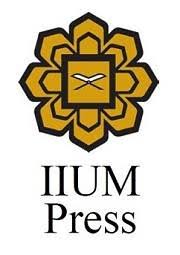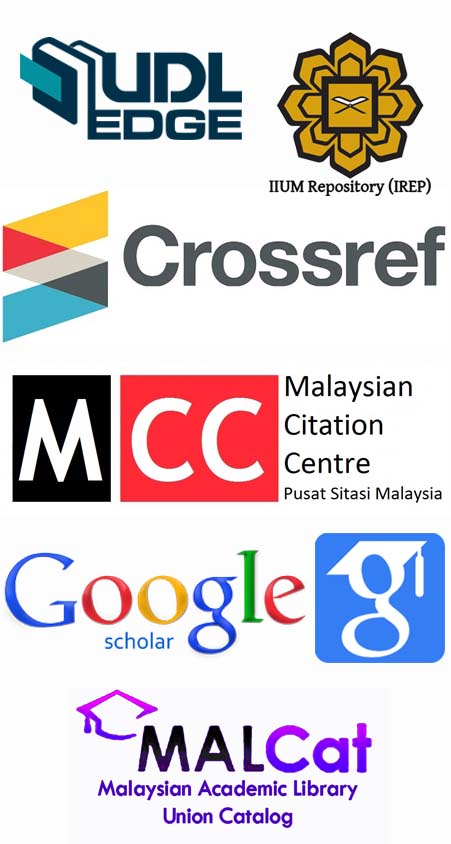ENSURING QUALITY EDUCATION IN SUSTAINABLE DEVELOPMNET GOALS FROM QUR’AN AND SUNNAH PERSPECTIVE
DOI:
https://doi.org/10.31436/alburhn.v6i3.268Keywords:
Literacy and Islam, quality education, SDG 4.6, Sustainable Development, Education for allAbstract
This research paper seeks to examine the fourth Sustainable Development Goal (SDG) which is to “ensure that all youth and a substantial proportion of adults, both men, and women, achieve literacy and numeracy” in the light of the Qurʾān and Sunnah. Literacy and numeracy skills are essential in achieving quality education and having access to acquire such skills is a fundamental human right. In relation to this, the first revelation to Prophet Muhammad, peace be upon him, was "iqrāʾ," which signifies the importance of literacy. In this paper, the Islamic perspective on ensuring quality education is described by employing descriptive and analytical methods. The study provides new insights about ensuring quality education for all youth and adults in light of the Qurʾān and Sunnah. Acquiring knowledge is obligatory in Islam; when individuals have access to quality education, they improve their prospects in all avenues of life. Islam encourages the pursuit of knowledge and its application for the benefit of humanity. Every Muslim must be educated in order to fulfill their duties and obligations to Allah and mankind. Providing equitable access to education for all members of society is a central priority of Islam.
Downloads
References
Ali, M. M. (2011). Holy Quran. Lahore, Pakistan: Ahmadiyya Anjuman Ishaat Islam.
Aburounia, H., and M. Sexton. (2006). "Islam and sustainable development." Research Institute for Built and Human Environment, University of Salford. Retrieved from http://drhamida. com/hameda/uploads/29fe0106-e233-d49f. pdf.
Adam. F. and Hj Ab Rahman. A. (2003). Tafsir and Mufassirun: An Overview. Kuala Lumpur: AS Nordeen.
Ahmadi, Mehri. (2016). "Sustainable development-Islamic perspectives." In 1st International Conference on Rethinking the Sustainable Development. Tabriz: Iran Earth Charter.
Ashraf, Syed Ali. (1994). "Faith-based education: A theoretical shift from the secular to the transcendent." Muslim Education Quarterly 11, no. 2: 1-4.
Atique, T. (2012). "Importance of education in the light of Islam: an overview." Journal of al-Attas, Muhammad Naquib. (1980). The concept of education in Islam. Kuala Lumpur: Muslim Youth Movement of Malaysia.
Laldin, Mohamad Akram. (2006). Islamic law: an introduction. Kuala Lumpur: IIUM Press.
Capra, F. (1996). The Web of Life. New York: Anchor Books, NY.
Chowdury, Saeyd Rashed Hasan. (2017). "Education for Sustainable Development from the Perspective of Islam; a Comparative Analysis." INNOVATION AND GLOBAL ISSUES IN SOCIAL SCIENCES: 692.
Dale, Ann, and Stuart B. Hill. (2001). At the edge: Sustainable development in the 21st century. Vol. 6. UBC Press.
Desa, U. N. (2016). "Transforming our world: The 2030 agenda for sustainable development".
Douglass, Susan L., and Munir A. Shaikh. (2004). "Defining Islamic Education: Differentiation and Applications." Current Issues in Comparative Education no. 1: 5-18.
Freeman, Christopher, Marie Jahoda, and K. L. R. Pavit. (1973). Models of Doom: a critique of the Limits to Growth. Edited by D. Cole HS. Universe Books.
Gough, Stephen. (2002). "Right answers or wrong problems? Towards a theory of change for environmental learning." The Trumpeter 18, no. 1.
Handl, Günther. (2012). "Declaration of the United Nations conference on the human environment (Stockholm Declaration), 1972 and the Rio Declaration on Environment and Development, 1992." United Nations Audiovisual Library of International Law 11: 6.
Hasan, Zubair. (2006). "Sustainable development from an Islamic perspective: Meaning, implications, and policy concerns." Journal of King Abdulaziz University: Islamic Economics 19, no. 1.
Holling, Crawford Stanley, and Lance H. Gunderson. (2002). Panarchy: understanding transformations in human and natural systems. Washington, DC: Island Press.
Ibn Kathīr, Abu al-Fidā’ Ismā’īl. (2001). Tafsīr al-Qurʾān al- ‘Azīm. Beirūt: Dār al-Kitāb al- ‘Arabi.
Imamuddin, M., Andryadi Andryadi, and Zulmuqim. (2020). "Islamic Education in The Al-Qur'an and Sunnah." Jurnal Educative: Journal of Educational Studies 5, no. 1 (2020): 70-83.
Kerlinger, F. N. (1986). Foundation of Behavioural Research (3rd edn). New York: Holt. Rienhart & Winston.
Khalid, Fazlun M. (2002). "Islam and the Environment." Encyclopedia of global environmental change 5, no. 1: 332-339.
Laurie, Robert, Yuko Nonoyama-Tarumi, Rosalyn Mckeown, and Charles Hopkins. (2016). "Contributions of education for sustainable development (ESD) to quality education: A synthesis of research." Journal of Education for Sustainable development 10, no. 2: 226-242.
al-Qaradawl, Yusuf. (1993). Madkhal li Dirasah al-Shari`ah al-Islamiyyah. Beirut: Mu’assasat al-Risalah.
Rammel, C. (2003). “Sustainable development and innovations: lessons from the red queen”, International Journal of Sustainable Development, Vol. 6 No. 4, pp. 397.
Salleh, Mohamad Johdi. (2009). "The integrated Islamic education: Principles and needs for thematic approaches." In An Integrated Islamic Education: Need for Thematic Approaches, Singapore Islamic Education System (SIES) Seminar, Wisma MUIS, Singapore.
Schmidheiny, Stephan, and Lloyd Timberlake. (1992). Changing course: A global business perspective on development and the environment. Cambridge: MIT press.
WCED (World Commission for Environment and Development) (1987). Our Common Future. Oxford: Oxford University Press.
Downloads
Published
How to Cite
Issue
Section
License
In general, reusing or reproducing substantial portions of al-Burhān content requires permission. This includes the use of text, figures, tables, multimedia content, and any other material published in any issues of al-Burhān Journal of Qur'an and Sunnah Studies. For some instances, al-Burhān may make its content freely viewable; however, such material may require permission for reuse. To seek permission, please contact the editorial.









